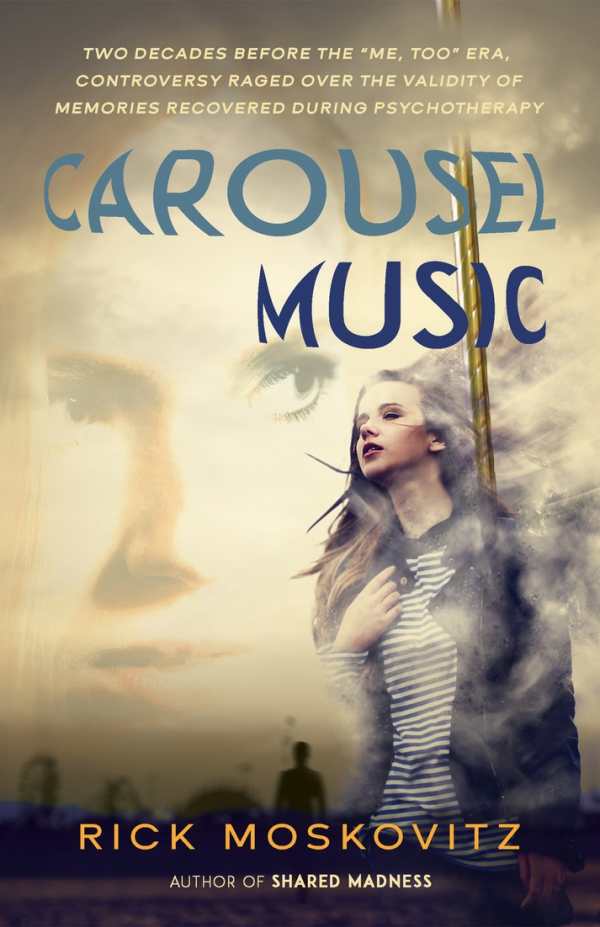Carousel Music
Revised Edition
Carousel Music is a compelling novel about the subjectivity of memories and the importance of listening when abuse victims speak.
Truth and memory are put on trial in Rick Moskovitz’s dark but compelling novel Carousel Music.
Stephanie’s entire life is a blur. She remembers the recklessness and pain of her teenage years, but nothing before them. Then sessions with a psychiatrist, Kenneth, unlock memories of how her father, Everett, raped her. Hurt, furious, and insistent that he is innocent, Everett sues the psychiatrist, further fracturing the family.
The trial dominates the second half of the book. Its courtroom trickery, emotional testimonies, and expert statements are related in meticulous detail, with complex psychological concepts explained well. Both sides debate the benefits and risks of hypnosis, as well as Stephanie’s reliability as a witness. It is a long, cruel process, throughout which Stephanie is revealed to have grown much since she hit her bottom. She navigates the process with poise and determination. Others do not fare as well; some, under unbearable pressure, fall victim to past vices. Eleventh-hour revelations lead to an unexpected resolution.
The book is set in the early 2000s, and Stephanie’s experiences, and her struggle to be believed, are both tragic and familiar. Each character approaches the case with their own baggage and biases: Everett’s lawyer has a vendetta against irresponsible doctors, while Kenneth confronts secrets lurking in his own family’s past; the increased scrutiny causes him to question everything he thought he knew about doing his job. The clinical prose, though it complements the story’s themes, diminishes the tension during the story’s urgent moments, though. Some scenes, including those wherein characters express disbelief over Stephanie’s story, are emotionally challenging.
Some of the book’s subplots and secondary characters are underdeveloped, including the role played by Stephanie’s sister and Stephanie’s relationship with her boyfriend. Stephanie’s sudden recovery of decades-old memories is an overused plot device, though her memories do prompt compelling questions about whose memories are considered reliable and why, and who is considered deserving of sympathy and why.
While some of the book’s subplots are resolved in a hasty manner, Stephanie’s story ends in a satisfying way; her challenges are arduous, but worthwhile. Prefaced by a considerate content warning, Carousel Music is a novel about the subjectivity of memory and the importance of listening when abuse victims speak.
Reviewed by
Eileen Gonzalez
Disclosure: This article is not an endorsement, but a review. The publisher of this book provided free copies of the book and paid a small fee to have their book reviewed by a professional reviewer. Foreword Reviews and Clarion Reviews make no guarantee that the publisher will receive a positive review. Foreword Magazine, Inc. is disclosing this in accordance with the Federal Trade Commission’s 16 CFR, Part 255.

